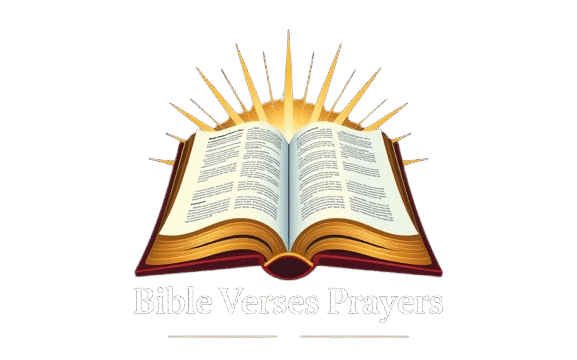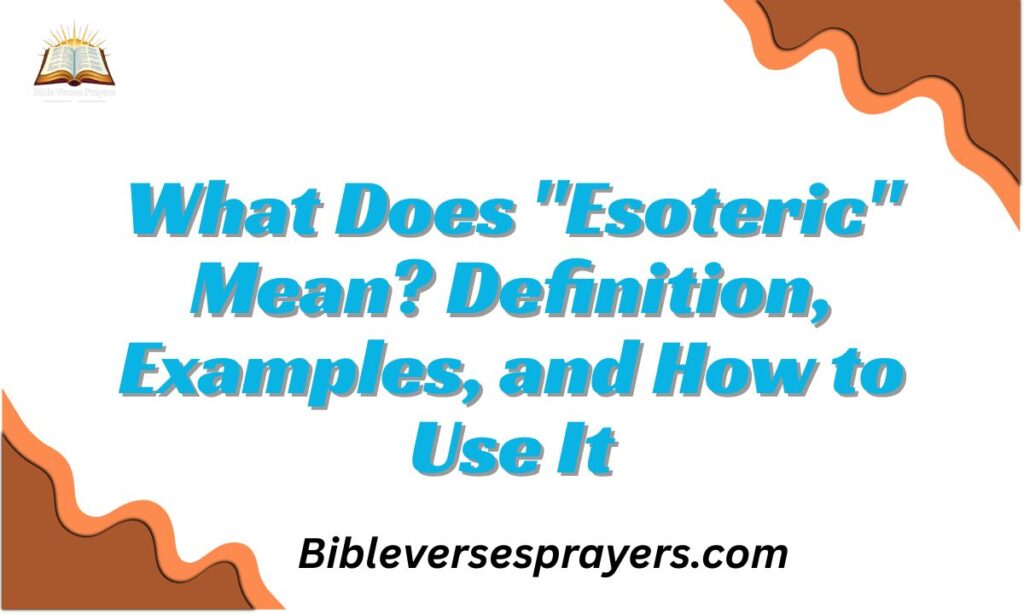Some words feel mysterious themselves. They describe concepts that aren’t widely understood. “Esoteric” is one of these fascinating terms. It describes knowledge that’s specialized or obscure.
Understanding this word opens doors to precise communication. You might encounter “esoteric” in academic writing. Perhaps you’ve heard it in intellectual conversations.
The word describes subjects that only experts truly grasp. It’s about specialized knowledge and hidden meanings. Let’s explore everything about this intriguing word.
Understanding the Word “Esoteric”
Basic Definition
“Esoteric” is an adjective with specific meanings. It describes knowledge intended for a small group. This information isn’t accessible to everyone. It requires specialized understanding or training.
The word suggests something difficult to understand. It’s not deliberately hidden necessarily. But it’s not easily grasped by outsiders. Only those with proper background can comprehend it.
Esoteric can also mean mysterious or obscure. Some information is esoteric because it’s rare. Other things are esoteric because they’re complex. Both uses are correct and common.
Etymology and Word Origins
“Esoteric” comes from Greek origins. The Greek word “esōterikos” means “inner” or “within.” It comes from “esōterō,” meaning “more within.” Ancient Greek philosophers used this term specifically.
In ancient mystery schools, teachings had two levels. Exoteric teachings were public and accessible. Esoteric teachings were secret and inner. Only initiated members received esoteric knowledge.
The word entered English in the mid-1600s. It maintained its connection to hidden knowledge. Over time, usage expanded beyond mystical contexts. Now it describes any specialized, difficult knowledge.
Modern Interpretation
Today, “esoteric” has broader applications. It still describes specialized knowledge in any field. Advanced mathematics is esoteric to most people. Rare philosophical theories are esoteric subjects.
The word doesn’t necessarily imply secrecy anymore. Something can be esoteric simply because it’s complex. Medical terminology is esoteric to non-doctors. Computer programming is esoteric to many people.
Context determines the exact meaning. In academic writing, it means highly specialized. In casual conversation, it might mean overly complicated. Understanding context helps proper interpretation.
Different Meanings and Uses
Academic and Intellectual Context
In academic settings, esoteric describes specialized research. A doctoral thesis might explore esoteric topics. These subjects interest only a small scholarly community.
Scientific journals contain esoteric information. Only experts in that specific field understand fully. The language is technical and precise. Laypeople find the content inaccessible.
Philosophy uses this word frequently. Ancient philosophical texts are often esoteric. They require years of study to comprehend. Commentaries help explain esoteric passages.
Mystical and Spiritual Context
Esoteric knowledge relates to mysticism and spirituality. Many traditions have esoteric teachings. These aren’t shared publicly or openly.
Kabbalah contains esoteric Jewish mysticism. Buddhist tantra includes esoteric practices. Western occultism involves esoteric rituals. Access requires initiation or special training.
This usage connects to historical meanings. Mystery schools guarded esoteric wisdom. Only dedicated students learned these secrets. The tradition continues in various forms.
Everyday Usage
People use “esoteric” casually to mean obscure. Someone might say a reference is “too esoteric.” This means most people won’t understand it.
A joke can be esoteric if few people get it. An interest becomes esoteric when it’s very niche. Collecting rare stamps might be considered esoteric.
This casual use sometimes carries mild criticism. Calling something esoteric might suggest it’s impractical. It implies the subject is too specialized. Context reveals whether it’s neutral or slightly negative.
Synonyms for “Esoteric”
Understanding related words clarifies meaning. Here are synonyms with subtle differences.
Obscure
“Obscure” means not well-known or unclear. It’s similar to esoteric but broader. Something obscure might be simple but unknown.
Esoteric implies complexity or specialization. Obscure focuses on rarity or hiddenness. An obscure fact might be simple. An esoteric fact is complex.
Arcane
“Arcane” suggests mysterious, secret knowledge. It’s very close to esoteric in meaning. Both describe specialized, hidden information.
Arcane often implies age or tradition. Ancient arcane texts describe old wisdom. Esoteric works for both old and new. The difference is subtle.
Recondite
“Recondite” means dealing with abstruse subjects. It emphasizes the difficulty of understanding. This word is quite formal and rare.
Recondite knowledge is deeply hidden or obscure. It’s perhaps more intense than esoteric. Few people use this word casually.
Abstruse
“Abstruse” focuses on difficulty of comprehension. It means it is hard to understand intellectually. The emphasis is on complexity.
Esoteric includes rarity and specialization too. Abstruse emphasizes mental challenge primarily. Something can be abstruse without being esoteric.
Cryptic
“Cryptic” suggests a deliberately hidden meaning. It implies puzzles or codes. The information is intentionally obscure.
Esoteric doesn’t necessarily mean intentional hiding. It might just be naturally difficult. Cryptic has more deliberate concealment.
Specialized and Technical
These are milder synonyms. “Specialized” means requiring specific expertise. “Technical” means involving special techniques or terminology.
Both are more neutral than esoteric. They don’t carry mysterious connotations. They simply describe professional knowledge.
Examples of “Esoteric” in Context
Seeing words in real sentences clarifies usage. Here are varied examples.
Academic Examples
- “The professor’s research focused on esoteric medieval manuscripts.” This shows specialized scholarly work.
- “Her dissertation explored esoteric theories in quantum mechanics.” This emphasizes complex, specialized knowledge.
- “Only a few scholars understand these esoteric philosophical concepts.” This highlights limited accessibility.
- “The journal publishes esoteric articles on linguistic theory.” This describes highly specialized publications.
Spiritual and Mystical Examples
- “He studied esoteric Buddhism in Tibet for years.” This shows hidden spiritual teachings.
- “The book revealed esoteric practices of ancient alchemy.” This describes secret mystical knowledge.
- “Esoteric symbolism appears throughout the ritual.” This indicates hidden meanings for initiates.
- “She teaches esoteric meditation techniques to advanced students.” This shows restricted spiritual knowledge.
Casual Conversation Examples
- “That movie reference is too esoteric for most audiences.” This means most people won’t understand.
- “His humor is esoteric and appeals to few people.” This describes niche, specialized comedy.
- “Stop making esoteric jokes that nobody gets.” This mildly criticizes overly obscure references.
- “Her interests are quite esoteric compared to most.” This means unusual or highly specialized hobbies.
Professional Context Examples
- “The manual contains esoteric technical specifications.” This describes specialized professional information.
- “Legal documents often use esoteric language.” This criticizes unnecessarily complex terminology.
- “The software has esoteric features few users understand.” This describes advanced, obscure functions.
- “His expertise in this esoteric field is unmatched.” This acknowledges specialized professional knowledge.
Esoteric vs. Exoteric
Understanding opposites clarifies meaning. “Exoteric” is the direct opposite of esoteric.
Definition of Exoteric
“Exoteric” means suitable for the general public. This knowledge is accessible and understandable. It doesn’t require special training or initiation.
Exoteric teachings are openly shared. They’re designed for mass understanding. Anyone can learn them without prerequisites.
Historical Context
Ancient Greek schools made this distinction. Public lectures were exoteric. Private lessons for advanced students were esoteric.
Mystery religions had exoteric rituals. These anyone could witness. Esoteric mysteries were for initiated members only.
This division appeared in many traditions. It protected sacred knowledge. It also made complex ideas accessible gradually.
Modern Application
Today, textbooks contain exoteric knowledge. They explain subjects for general learning. Research papers contain esoteric information for specialists.
Popular science books are exoteric. They make complex subjects accessible. Academic journals remain esoteric for experts.
The distinction helps in teaching. Start with exoteric concepts. Move to esoteric depth gradually. This pedagogical approach works well.
How to Use “Esoteric” Correctly
Proper usage requires understanding context and connotation. Here’s practical guidance.
Choose Appropriate Contexts
Use “esoteric” for genuinely specialized knowledge. Don’t apply it to merely unfamiliar topics. Something isn’t esoteric just because you don’t know it.
Academic writing welcomes this word. Intellectual discussions suit it well. Casual conversation allows it but sparingly.
Avoid using it pretentiously. Don’t say “esoteric” just to sound smart. Use it when it genuinely fits.
Consider Your Audience
Know whether your audience understands “esoteric.” It’s not a common everyday word. Some people might need an explanation.
In academic settings, assume understanding. In general writing, consider simpler alternatives. “Specialized” or “obscure” might work better.
Match vocabulary to audience sophistication. This ensures clear communication always.
Pair with Appropriate Nouns
Certain nouns commonly pair with “esoteric.” These combinations sound natural together.
Esoteric knowledge, esoteric subjects, esoteric teachings work well. Esoteric concepts, esoteric practices, esoteric information fit naturally.
Esoteric hobbies, esoteric interests, esoteric references work casually. These combinations feel right to native speakers.
Avoid Overuse
Don’t pepper your writing with “esoteric.” Once or twice per article is enough. Repetition weakens impact.
Vary your vocabulary with synonyms. Use “specialized,” “obscure,” or “arcane” alternately. This demonstrates range.
Be Precise in Meaning
Clarify whether you mean difficult or rare. These nuances matter for precision. Context should reveal exact meaning.
If something is intentionally hidden, say so. If it’s just complex, clarify that. Precision improves communication quality.
Common Phrases and Collocations
These word combinations appear frequently together. They sound natural and idiomatic.
- Esoteric knowledge – Specialized, hidden information
- Esoteric teachings – Secret or advanced lessons
- Esoteric practices – Specialized or mystical techniques
- Esoteric subject – Highly specialized topic
- Esoteric reference – Obscure allusion few understand
- Esoteric interests – Unusual, niche hobbies
- Esoteric concepts – Complex, specialized ideas
- Esoteric symbolism – Hidden meanings in symbols
- Highly esoteric – Extremely specialized or obscure
- Too esoteric – Overly obscure for the audience
Esoteric in Different Fields
Various disciplines use this word differently. Understanding field-specific usage helps.
In Philosophy
Philosophy frequently discusses esoteric texts. Ancient philosophers wrote on multiple levels. Surface meanings were accessible. Deeper meanings required study.
Plato’s dialogues contain esoteric teachings. Scholars debate hidden meanings still. Aristotle distinguished exoteric from esoteric works.
Modern philosophers use the term too. Heidegger’s later work is quite esoteric. Continental philosophy often seems esoteric to outsiders.
In Religion and Spirituality
Many traditions have esoteric branches. Christianity has mystical, esoteric teachings. Islam has Sufi esoteric practices.
These teachings aren’t for beginners. They require spiritual development first. Teachers share them selectively.
Esoteric religion emphasizes direct experience. It goes beyond dogma and ritual. Personal transformation is central.
In Science and Technology
Scientific specialization creates esoteric knowledge. Quantum mechanics is esoteric to most. Advanced mathematics is deeply esoteric.
Each scientific field has esoteric subfields. Only specialists understand cutting-edge research. Peer review happens among small expert groups.
Technology has esoteric aspects too. Software architecture can be esoteric. Advanced programming languages seem esoteric to beginners.
In Arts and Literature
Literary criticism can become quite esoteric. Deconstructionist theory seems esoteric to many. Scholarly interpretations use specialized terminology.
Some art is deliberately esoteric. It challenges viewers to find meanings. Not everyone will understand or appreciate it.
Music theory includes esoteric concepts. Advanced harmonic analysis is esoteric knowledge. Jazz theory can seem esoteric to classical musicians.
Comparison Table: Esoteric and Related Terms
| Word | Primary Meaning | Connotation | Common Usage |
| Esoteric | Specialized/hidden knowledge | Neutral to mysterious | Academic, spiritual contexts |
| Obscure | Not well-known | Neutral | General usage |
| Arcane | Secret, mysterious | Mysterious | Mystical contexts |
| Recondite | Difficult to understand | Formal/academic | Rare, scholarly writing |
| Abstruse | Hard to comprehend | Neutral to negative | Academic contexts |
| Exoteric | Public, accessible | Positive | Contrasted with esoteric |
Tips for English Learners
Non-native speakers benefit from specific guidance. Here are helpful tips.
Pronunciation Guide
“Esoteric” is pronounced: es-oh-TER-ik. Stress falls on the third syllable. The “e” sounds like “ess.”
Break it down: es-o-ter-ic. Practice each syllable separately. Then combine them smoothly.
Some speakers say es-uh-TER-ik. Both pronunciations are acceptable. The first is more common.
Memory Techniques
Connect “eso-” to “inner” meanings. Remember Greek origins about “within.” This helps recall the hidden knowledge aspect.
Think “esoteric = for experts only.” This simple formula works well. It captures the essential meaning.
Contrast with “exoteric = for everyone.” Learning opposites together reinforces both. This paired learning is effective.
Reading Before Speaking
See “esoteric” in context repeatedly. Read academic articles or intellectual writing. Notice how native speakers use it.
Observe which subjects get called esoteric. Notice the tone and connotation. Context teaches appropriate usage.
Start with Writing
Use “esoteric” in writing first. This gives time for consideration. You can edit and revise.
Speaking requires instant word choice. Build confidence through writing first. Then try using it in conversation.
Practice Sentences
Create your own example sentences. Write about topics you find esoteric. Describe subjects requiring specialized knowledge.
Share sentences with teachers or native speakers. Get feedback on usage. This accelerates learning.
When Not to Use “Esoteric”
Knowing when to avoid a word matters too. Here’s when other words work better.
For Simply Unfamiliar Topics
If something is just new to you, don’t say esoteric. A subject isn’t esoteric because you haven’t studied it.
Use “unfamiliar” or “new to me” instead. This is more accurate. It avoids misusing the term.
For Popular Culture
Current trends aren’t esoteric even if niche. A popular TV show isn’t esoteric. A viral meme isn’t esoteric.
Use “niche” or “specialized” for popular subcultures. Save esoteric for truly obscure knowledge.
In Very Casual Settings
Among friends, simpler words often work better. “Weird,” “unusual,” or “confusing” might fit better.
Using “esoteric” can sound pretentious casually. Match vocabulary to social context. Relatability matters in casual talk.
When Clarity Requires Simplicity
Technical writing sometimes needs simple language. If your audience might not know “esoteric,” choose alternatives.
“Specialized” or “advanced” work universally. They communicate without potential confusion. Clarity always trumps sophistication.
Real-World Applications
Understanding when esoteric knowledge appears helps. Here are practical examples.
In Education
Graduate programs contain esoteric material. Advanced courses require prerequisites. Not everyone can jump into PhD-level work.
Esoteric subjects need specialized teachers. Only experts can explain them properly. This limits who can learn certain topics.
In Professional Fields
Every profession has esoteric aspects. Lawyers understand legal esoterica. Doctors know medical esoterica. Engineers master technical esoterica.
This specialization creates value. Experts charge for esoteric knowledge. People pay for specialized expertise.
In Hobbies and Interests
Some hobbies become quite esoteric. Collecting rare coins requires specialized knowledge. Building custom electronics needs technical expertise.
These esoteric interests form communities. Enthusiasts share specialized information. They understand each other’s passion.
In Online Communities
Internet subcultures develop esoteric knowledge. Gaming communities have specialized terminology. Online forums create insider knowledge.
Newcomers face esoteric barriers. Learning community-specific information takes time. This creates belonging for members.
Frequently Asked Questions
What’s the difference between esoteric and exotic?
“Esoteric” means specialized or hidden knowledge, while “exotic” means foreign or unusual; they sound similar but have completely different meanings.
Is esoteric always about secret knowledge?
No, modern usage often means highly specialized or complex rather than deliberately secret, though it can mean both depending on context.
Can esoteric be used as a compliment?
Yes, describing someone’s knowledge as esoteric acknowledges deep expertise, though calling their interests too esoteric might be mildly critical.
What’s an example of esoteric knowledge today?
Advanced quantum physics, rare medieval manuscripts, specialized medical procedures, or complex computer algorithms all represent esoteric knowledge.
Is saying something is esoteric negative?
Not necessarily—in academic contexts it’s neutral, but casually it might suggest something is impractically obscure or overly complicated for most people.
Conclusion
“Esoteric” is a powerful, precise word. It describes knowledge that’s specialized or hidden. Understanding it improves your vocabulary significantly.
The word carries ancient wisdom traditions. From Greek mystery schools to modern academics. Its history enriches its meaning today.
Use “esoteric” when discussing specialized subjects. Apply it to knowledge requiring expertise. Remember both mystical and academic contexts.






